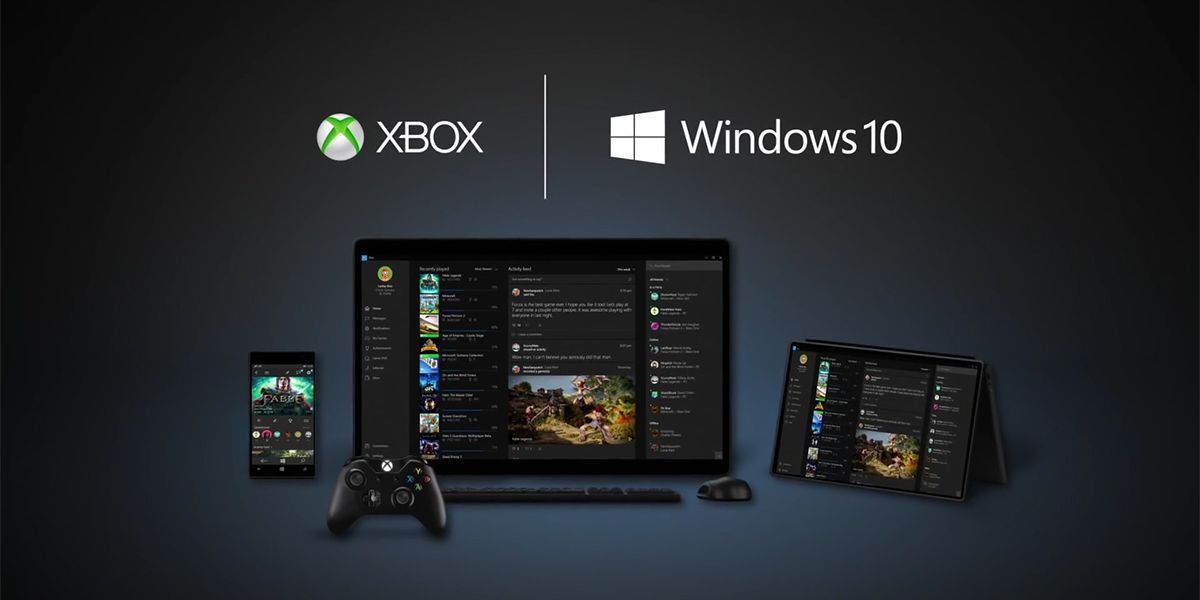Gaming has always been a multi-headed beast, with the "Console Wars" raging between different gaming consoles, while the "Console vs. PC" argument forked off in a completely different direction. Cross-platform play has popped up from time to time, but it never really seemed to catch on because it was usually tied to specific titles.
Microsoft started making progress toward a single platform with the announcement of cross-platform saves on Quantum Break for the Xbox One and PC (the latter of which was announced as free with the preorder of the Xbox One version of the game). Now, the company has made a bold step forward, announcing plans to unify its gaming platform and make it universal across Microsoft devices.
Xbox head Phil Spencer confirmed recently that the Universal Windows Platform would become the core of the company's gaming strategy to allow game developers to innovate beyond the limitations of console hardware. This platform would not only feature games for sale on the Xbox One and the PC, but they would be built on a common platform so games designed for one could be played on the other and would be featured in both the Xbox store and the Windows Store in Windows 10. Addressing the platform and its reach across the Xbox and PC, Spencer said, "That is our focus going forward... Building out a complete gaming ecosystem for Universal Windows Applications." Spencer went on to explain:
“In other ecosystems you get more continuous innovation in hardware that you rarely see in consoles because consoles lock the hardware and software platforms together at the beginning and they ride the generation out for seven years or so. We’re allowing ourselves to decouple our software platform from the hardware platform on which it runs.”
The plan to create a universal gaming ecosystem across Microsoft's platforms can be traced back at least a year, from the initial announcement of an Xbox app on Windows in early 2015 to the switch of the Xbox One to a Windows 10-based OS in November, and CEO Satya Nadella's comments that Windows Universal Apps would be coming to the Xbox One this January. Moving forward, games developed on the Windows Universal Platform would not only be cross-compatible with Windows 10 PCs and the Xbox One, but would also theoretically be compatible with future Xbox hardware and the Hololens as well. Cross-platform play and allowing developers to easily add cross-platform sales to their titles are also in the pipeline for the new ecosystem. On the hardware side of things, the new ecosystem would allow for more substantial technology revisions within the current console generation than has been seen in previous generations, as Spencer explained:
“We believe we will see more hardware innovation in the console space than we’ve ever seen. We’ll see us come out with new hardware capability during a generation and allow the same games to run backwards and forward compatible because we have UWAs running on top of UWP. It allows us to focus on hardware innovation without invalidating the games that run on that platform.
We can effectively feel a little bit more like what we see on PC where I can still go back and run my old Quake and Doom games, but then I can also see the best 4K games coming out. Hardware innovation continues and software takes advantage. I don’t have to jump generation and lose everything I played before."
Some gamers might see this as just a way for Microsoft to get them to buy new console versions within the same generation, since it's possible that future games might not be compatible with current Xbox One hardware. Spencer's comment on games being both backwards and forward compatible suggests there may be plans within the platform to scale back games to meet current hardware specifications, though more information will have to be released on this specific point before a lot of gamers get on board. Indie developers may actually benefit from this shift more than AAA studios, since they could develop and release games for both the PC and the Xbox with nothing more than freely available UWP development tools and a Windows Store seller registration.
Of course, it remains to be seen how Microsoft will handle different hardware specifications across the platform; this is especially a concern if Xbox One revisions come out with more powerful hardware instead of just smaller components and larger storage like we've seen in the past. The price point of the "updated" hardware will also be a factor, since it's unlikely that current Xbox One owners would be willing to buy multiple new versions of the console at full price just to play a handful of games that require the full hardware specs of those updates. Regardless, it will likely be a while longer before we see the new ecosystem reach its final iteration and games are being released that were developed from the ground up for the Universal Windows Platform.
Next: Microsoft Wants to Make Crossbuy for PC an Xbox One Feature
Source: The Guardian



